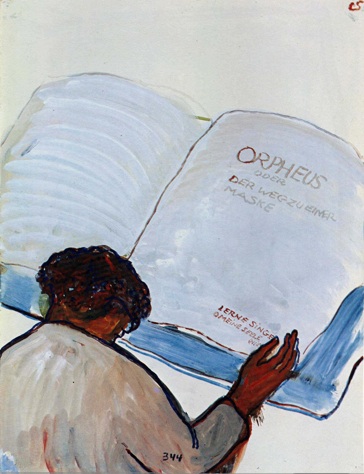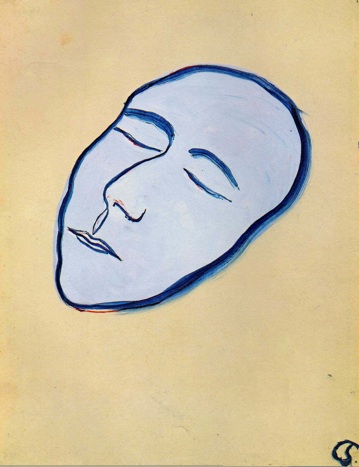Voice Institute
Orpheus


Section One
Dear Reader,
If you are really there, I will be happy to tell you a secret: this book is only about myself.
This statement gives you two choices: be reasonable and ignore this book or be satisfied that you are smarter than I. I assume that you, too, consider a book to be worthwhile only if the personal aspects of the author are kept out, if individuality is hidden, and if the imagination is let loose describing people who, for you, have nothing to do with the writer.
If so, I think you are allowing yourself to be misled by those wise people whose views are generally followed.
Of course, dear Reader, by saying this you immediately realize that I am criticizing so-called writers and critics. But I do not want to create a problem. I admire critics and their work. I respectfully admire them just like I admire the technological achievement of a motorcar or an aeroplane. I can do that easily for I do not have the slightest idea about these things. I am humble enough to not even want to understand them. I am old-fashioned and content with the fact that I can go for a leisurely walk, and the speed of my inspiration will still not be surpassed by that of a racing car. Besides there must be some people, the people who eat the dust that others kick up, who are able to cope with the attitude of drivers who feel themselves superior to pedestrians.
Every now and then, of course, I come across a car, which, due to a head-on collision, is completely smashed. Then I am surprised that this crowning achievement of our evolution can come to such grief. I had always thought that we had evolved further than this. How abominably ugly is this smashed-up masterpiece of our invention. It reminds me of a beautiful story about Christ, his Disciples, and a dead dog. Once, when walking along a street, Christ and his Disciples came across the body of a dead dog. In nasty comments, the Disciples expressed their contempt for the ugliness of the carcass. Christ simply replied: “But, look at its white teeth.”
So, let me repress my thoughts, which want to scorn the miserable remains of a car and say: “But, look at its beautiful blue color!”
Do not get me wrong, this is not an exercise in brotherly love but comes from the fact that on my walks, I also have often tripped and hurt myself. Similarly, in a cheese, I try not to see only the holes, nor only the firm stuff. I try to see the cheese as something with both.
Therefore, I believe I have the right to look at the holes found in the theories of critics and motorists alike.
There is still another reason why I need to confront critics. You and I live in a time of transition, perhaps more than you think - given the fact that besides driving a car, you still want to think. Our epoch is destined to make a bridge to another epoch, and so it forms a beginning. In this age we are all ruled by the laws of movement, whether we realize it or not, and therefore we must make ourselves familiar with the idea of seeing it also as a new beginning.
Times like ours, which bring one upheaval after another, uprooting each and everyone’s personal life, cannot be ignored by burying one’s head in the sand while we seek refuge in past ideologies. However much we may suffer, we must absorb the movement of our time and see it as a lever of our own internal movement. One must keep pace with the times in order to test and discover which of the current forces run parallel to those governing us from within. And if our time creates torture and suffering, we too must prepare ourselves to be oppressed and then create; if our time is in chaos, in darkness, then we will do well to leave behind what we have inherited and bravely take a step into the abyss.
Dear Reader, I could have made my job easier by assuming a subservient role to some ideal. I could have grown a beard and wrinkled my forehead, or invented a beautiful love story with the wonderful news that Hans will find his Gretchen or maybe not.
Do you know where this would lead? An American novelist, whose recently published book had been badly reviewed and whose worried publisher had a negative view about the future sales of this love story, put the following advertisement in a newspaper’s marriage column: “A Gentleman in his best years, endowed with spiritual and material wealth, seeks a young woman not well off with the only condition that she must correspond exactly to the portrait of the heroine, which the author, Mr. X (namely himself), has outlined in his latest novel.” As a result 40,000 young women bought the novel and contacted the author saying that they matched exactly the description of the heroine, right down to the smallest detail. I do not mean to say that authors are a particularly gifted species of marriage swindlers. I simply prefer not to entertain in order to be supported.
I believe I have said enough about holes and can now turn to the firm substance which - are you surprised dear Reader? - I of course find with me. It is made of plaster of Paris and represents my Mask. I will tell you its story.
The Mask bearing my features lays no claim to be considered a work of art, nor does the story which tells of its origin. An art work, as the name implies, is a work of art. The German for art is Kunst and is derived from the verb können, i.e. “to be able to.”
For me, “to be able to” means that I can find concepts like art, life, dream, and soul questionable, that is to say, I am able to question them. For example, I once asked: “What is happiness?” “It is where you are not,” came the answer from a Schubert[1] song. I nodded my head in agreement until I happily remembered that this answer was only meant for walkers, who have been overtaken by motorists. For them I found a positive answer in a Goethe[2] quotation: “The supreme happiness of earth’s children is surely personality.”[3]
Unfortunately, later I read that when Goethe was asked at the end of his life whether he had been happy or not, he replied that if he added together all the happy moments throughout his life, they would amount to six weeks, at the most.[4] I had the choice of assuming that Goethe had only developed a personality for six weeks or that art is an activity which colors the things we read. I decided that it must be the latter assumption but preferred not to have anything to do with it and was happy just to look at my Mask and walk around it. By doing this, I discovered that in my life, I have in fact really done nothing other than walk around myself in circles.
Whether this can be thought of as a way, I leave you to decide, dear Reader.
[1] Franz Peter Schubert (31 January 1797 - 19 November 1828) was an Austrian composer. He wrote some 600 lieder, nine symphonies (including the famous Unfinished Symphony), liturgical music, operas, and a large body of chamber and solo piano music.
[2] Johann Wolfgang von Goethe (28 August 1749 - 22 March 1832) is probably the most famous German writer and one of the key figures in the Romantic movement. Goethe’s works range from the fields of poetry, drama, literature, theology, humanism, and science. Goethe’s major work is the two-part drama, Faust. Goethe’s other famous literary works include his poems, the Bildungsroman, Wilhelm Meister’s Apprenticeship and the novel, The Sorrows of Young Werther.
[3] Goethe, West-östlicher Divan, “Höchstes Glück der Erdenkinder / Ist doch die Persönlichkeit.”
[4] On 27 January 1824, Goethe said to Johann Peter Eckermann (as recorded in his Conversations of Goethe):
“I have ever been esteemed one of Fortune’s chief favorites; nor will I complain or find fault with the course my life has taken. Yet, truly, there has been nothing but toil and care; and I may say that, in all my seventy-five years, I have never had a month of genuine comfort. It has been the perpetual rolling of a stone, which I have always had to raise anew. My annals will render clear what I now say. The claims upon my activity, both from within and without, were too numerous.
My real happiness was my poetic meditation and production. But how was this disturbed, limited, and hindered by my external position! Had I been able to abstain more from public business, and to live more in solitude, I should have been happier, and should have accomplished much more as a poet.”
© 2012 Abraxas Publishing
